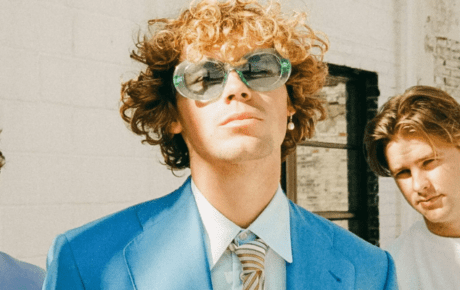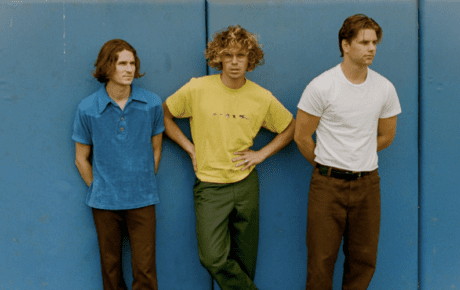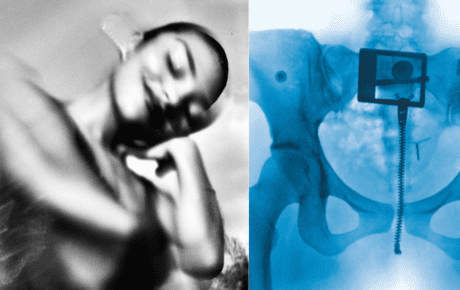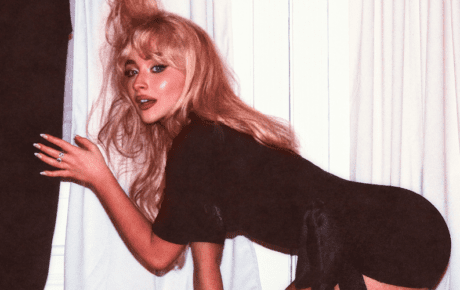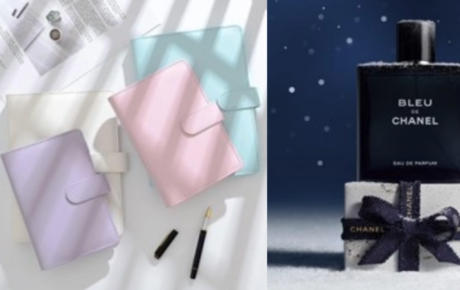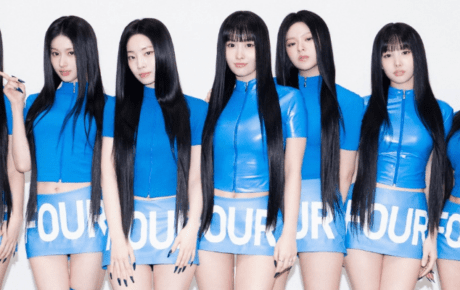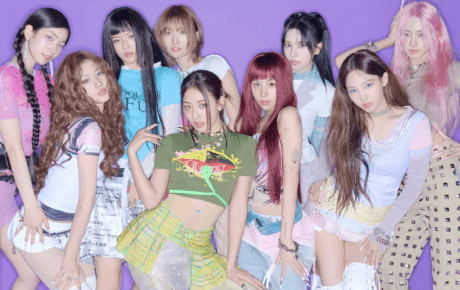This week saw the release of I Said I Love You First, a collaborative album between recently-engaged music industry veterans Selena Gomez and Benny Blanco. Selena’s fourth studio album and Benny’s third, this project is a beautiful pendulum of quieter wisdom and carefree celebration, expressing “all the different shades of human and the range of motion”. Selena’s vocals captured in Benny’s atmospheric production curates a sonic world that elevates the emotional resonance of each track to levels richer than pioneered alone. It’s palpable – the warmth of peace that these songs radiate, the sensibility of content that they so genuinely emerge from. Rather than functioning as a centrepiece, Benny and Selena’s relationship is a springboard to explore any and every experience lived before. “This whole project embodies his stories combined with my stories,” Selena shared with Rolling Stone. “They have meanings that are really just personal to both of us.”
I Said I Love You First opens with an archival audio that shares the album’s title – it’s a clip of eighteen-year-old Selena, giving her final speech on the set of Wizards of Waverly Place (“All of you have raised me in so many different ways and challenged me as a person / So I have this launch pad that you’ve all given me because now I can do so many wonderful things because of this”). The introduction recontextualises the pivotal sentiment and heralds the regular use of voice samples throughout the album that enrich the tapestry of perspective, friends, and history that textures the snippets of love shared across these tracks.
Debuting with a vulnerability and softness that might catch you off-guard, ‘Younger and Hotter Than Me’ is a somber piano ballad that invokes a heartbreakingly self-deprecating onus of one’s past through striking visual metaphors of X’s drawn in sharpies, angles reduced to leashed hounds, and apartments that withstand the devastation of time. The confession parallels thematics akin to those explored on Taylor Swift and Phoebe Bridger’s ‘Nothing New’. Selena’s vocal breakthroughs range from honest whispers to choral outcries – that when paired with Benny’s ambient-rich soundscape – make detrimental self-reflection sound as desirable and siren-like as such an emotional spiral can feel. The strings in the final chorus swell under the keys, with the musicality punctuated by an erratic twinkling sample that makes the emotional shattering sound magic. ‘Younger and Hotter Than Me’’s crescendo is a true masterpiece from Blanco and fellow featured producer FINNEAS – a wind tunnel of time, a spell that snaps and casts you back out to the opening imagery in its final lines.
At the liminal beep of a dial tone, we’re catapulted into the adrenaline of the single ‘Call Me When You Break Up’ feat. Gracie Abrams. The choice of feature ties implicitly to the transcendent and generational nature of feminine perspectives – a notion that challenges the pathological ethos that inspires ‘Younger and Hotter Than Me’. An anthem that remains vocally soft yet is emotionally rallying, ‘Call Me When You Break Up’ is a self-ridiculing projection that is also informed by the confessions in the track prior (“my faith was in the basement,” ”look, I’m emotionally bankrupt”). It’s an acoustically-charged soundscape, with Benny drilling home the negotiation of worthiness and connection with an endearing desperation.
Next comes the sonic nostalgia of ‘Ojos Tristes’ featuring The Marías, an interpolative ode to Janette’s 1981 ‘El Muchacho de los Ojos Tristes’. Benny proves his immersive aural metaphors by curating an opening procession that sounds exactly like the darting, avoidant, and veiled mask of a sorrowful gaze. ‘Ojos Tristes’ is an emotional waltz, electrified by evocative guitar riffs that Benny has laid over a percussive pulse and superimposed breathy vocals with a familiar and haunting resignation.
I Said I Love You First continues the legacy of the emergence of thematic couplets in Selena’s discography – like anthems ‘Who Says’ and ‘Rare’. Here, it surfaces in the tracklisting for one, with the titular combo of ‘Ojos Tristes’ (sad eyes) into ‘I Don’t Wanna Cry’. The transition into Benny’s upbeat disco pop-funk production here signals a shift in the album’s course that stands out for so early in the project’s arrangement. The affirmative statement of resignation paves the way for an expansive dimension in which ‘Sunset Blvd.’ emerges and inflates the album’s senses with a bubblegum pop synth. This track rides the highs of innuendo lyrically and sonically. It’s a cheekiness Selena confessed she felt empowered toward by ways of modern pop artists like Chappell Roan and Sabrina Carpenter who have “opened the door to this interpretive type of cheekiness.” Sel told Rolling Stone she’s “more comfortable kind of playing with the lyrics than I used to be. And I want to actually thank all the other artists.” Making reference to the location of Benny and Selena’s first date, ‘Sunset Blvd.’ is overanimated and overstated, akin to the drama, shine, and glamour of the Sunset Strip. There are lyrical references to cliches like roses or cherry pie, and Blanco builds in an infectious physicality that feels like spinning around with inexplicable joy.
The energetic showcase quickly shifts levels from the streets to behind-closed-doors, building into the sensual heart of the project. ‘Cowboy’’s opening notes beacon an intimate homage reminiscent of 2017’s ‘Fetish’, with Selena describing the song as her matured recreation of Revival-era hit ‘Good For You’. Also enriched by the touch of long-time collaborator Cashmere Cat, this track is vocally and atmospherically enchanting. It nails the simplicity of the ‘whisper-pop melancholy’ that Benny credits Selena for pioneering in the early 2010s. It’s an understated hallmark of her sound that was far ahead of its time, now nesting in the dreamscape of 2020s pop in stylistic parallel to modern hits like Addison Rae’s ‘Diet Pepsi’. The mirage of ‘Cowboy’ falls away into instrumentation of a sole acoustic guitar, signing off with a surprise outro from GloRilla – a move that proves I Said I Love You First freshens the dynamics at every turn.
‘Bluest Flame’ is no exception, an electrifying elevation to hyperpop that enshrines Selena’s artistry as a natural house artist, not just a household name. This track is a standout on I Said I Love You First, with a dynamism that is outstandingly charged and unexpectedly generically kaleidoscopic. Co-written by Charli XCX – this track feeds the sweaty and euphoric withdrawals of brat summer. It blends masterful strings and samples unconventional sonic combinations, with all beats incredibly punched to curate an unreal “hypnotic, crazy cool feeling…like a fever dream”.
The pulsing breathlessness of ‘Bluest Flame’ is outed in a gasp as Benny mills over dreamy western blues that mirror Lana Del Rey’s Born To Die era on ‘How Does It Feel To Be Forgotten’. Selena has a point-blank brutality on this piece that the beautiful sonic reverb strengthens, rather than softens (“You’re so embarrassing, go cry where no one’s watching”). The collaboration is the best of both creators, asserting itself as an understated crowning jewel of the album.
Benny and Selena pique attention once more with ‘Do You Wanna Be Perfect’s unexpected interruption. The interlude is uninvited, an satirically obnoxious reference to harmful projections of beauty standards that permeate artistry and celebrity. Charged with the same animation as ‘Sunset Blvd.’, the sentiment offers fresh exasperation about age-old preoccupations, unafraid to make direct references to cosmetic uses of Ozempic (“Now for six easy payments of only a hundred thirty-nine dollars, these-”). ‘Do You Wanna Be Perfect’ evidences a read on the culture that traverses media forms – thematically aligning with the likes of 2024’s Oscar-nominated film The Substance – with a personal condemnation from Gomez to sign off.
Blanco lulls us back into the musicality with ‘You Said You Were Sorry,’ that showcases Selena’s breathy vocals as a sister to ‘How Does It Feel To Be Forgotten’. The blend of bass, percussion, and strings is a recipe Benny has polished on this project. This piece continues an absolute melt into a cohesive sonic scape – a blissful ease only crafted by absolute expertise. I Said I Love You First’s ode to the past goes deeper on this track too, directly sonically-informed by fellow disney star Miley Cyrus’ ‘Angels Like You’ to continue the weave of dimensions of time.
2019’s ‘I Can’t Get Enough’, featuring J Balvin offers a pivotal reprieve to celebrate the present. Structurally, there’s a notable focus on the post-chorus hook that might be attempting to recreate the feel of Selena’s feature on 2018’s ‘Taki Taki’. This dance track is catchy, offering a middle-ground between the intensities of ‘Bluest Flame’ and an amp-up from the emotionally-heavier tracks.
‘Don’t Take It Personally’ is a knife that plays upon the sincerity of the album’s entire precession with a disingenuous chorus that places the listener in Selena’s shoes with a pervasive ambiguity.
What is lyrically disguised as a mature dissolution of past ties lands as a facetious attack. One signposted by key lyrics like “some things are just meant to be” and “you’ll find someone perfect” – an ideal that’s been consistently countered throughout the entirety of the project’s truths.
I Said I Love You First is capped by ‘Scared of Loving You’, an ode from Selena and Benny to one another. A snippet of their love in the quiet moments, these lyrics are in essence unofficial vows, vocally underscored by Finneas’ harmonies and gentle acoustics. This one is special, it’s a standalone – a world apart from the stories told here, yet inherently integral in the formation of every single one.
Returning to Selena’s special for couplets in artistry – her and Benny’s partnership is it. Together the pair have constructed a domesticity safe enough for these stories to emerge. The album is fresh and nostalgic, it’s experimental and it’s classic. Each piece demands its own consideration, while also offering something for every listening experience. It’s a sensibility that solidifies this work with a quiet certainty amongst the 2020s pop scape. Both artists have done an incredible job at creating wildly unique sonic worlds with each track, rendering their emotional pillars as excavations of ancient wonders, as opposed to a repetitive construction of the generic. What was cast out as a throwaway comment by Blanco in reference to the album’s making, ultimately captures everything magic about I Said I Love You First: “I just feel like your guard is down when you’re in a house.”





